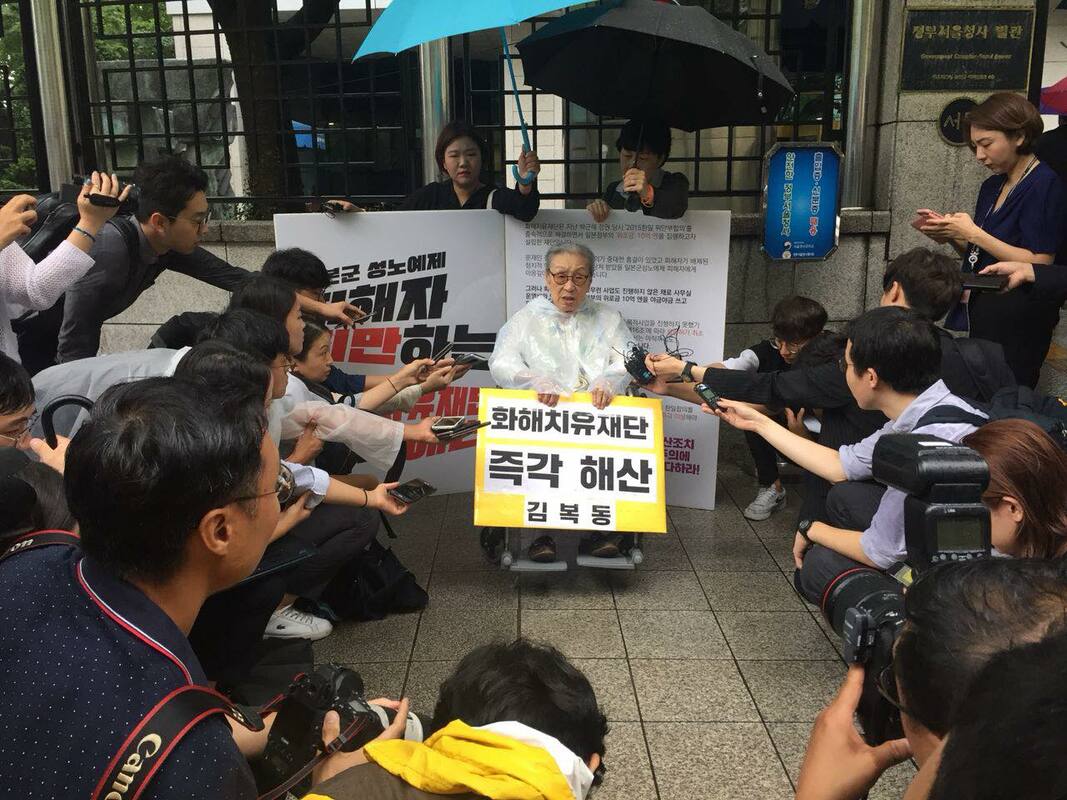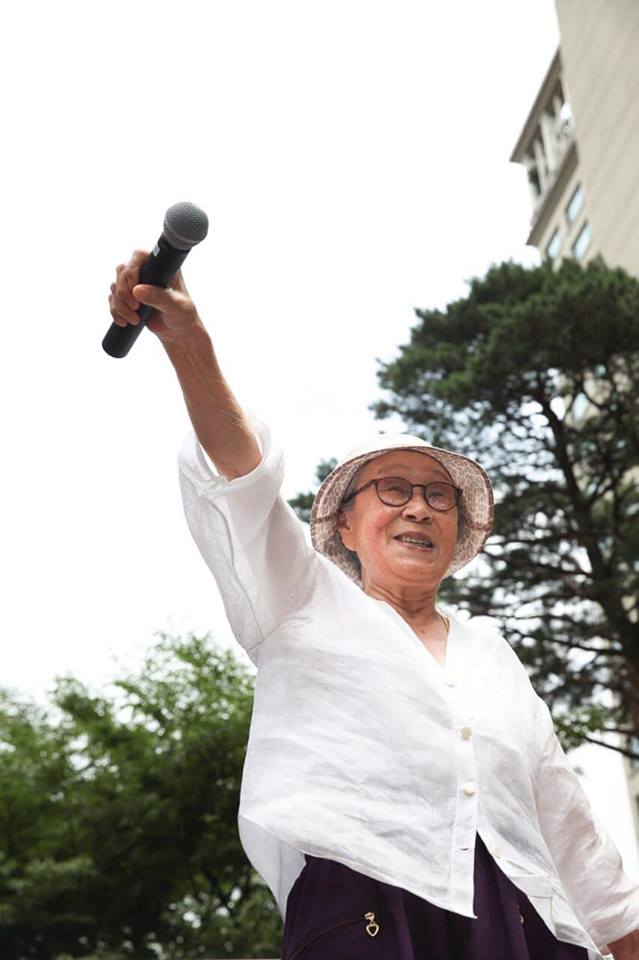|
It is with grave sadness that I inform you that Bok-Dong Kim, a peace advocate and human rights activist, passed away yesterday. She was 93. A few months ago, on September 3, 2018, despite having had surgery five days prior, she staged a solo protest in pouring rain, demanding the disbandment of the Reconciliation and Healing Foundation. The Reconciliation and Healing Foundation was established on July 28, 2016 with the 1 billion yen from the Japanese government as part of the flawed 2015 “Comfort Women” agreement between South Korea and Japan. According to the deal, Japan would pay 1 billion JPY (around 8.3 million USD in 2015) in “charity” to South Korea to help victims of the “comfort women” system. In exchange, South Korea was to establish a foundation to help the survivors, provide no support for other efforts to install statues or monuments related to “comfort women” in other countries, stop referring the victims as sex slaves, and remove the “comfort women” statue across from the Japanese embassy in Seoul. On November 21, 2018, the Ministry of Gender Equality and Family of South Korea made a formal announcement that the South Korean government will begin the process of closing the foundation, taking account of the victims’ demands. When Congressman Mike Honda and I visited Bok-Dong “Grandma” Kim at the hospital on November 7 of last year, she asked visitors to keep fighting for her and her cause. In one of her last videos, recorded at Peaceful Our House at the Korean Council, she said, “Although sometimes I question whether or not our situation is hopeful, I know we need to hold onto hope. I do. Please follow me. Let’s gather our strength and not forget about hope. Let’s hold onto hope together.” ESJF hopes her message of resilient activism will assuage the deep sadness we feel. ESJF also expresses condolences to everyone at the Korean Council, who became a big loving family for Bok-Dong Kim, an unforgettable peace advocate and human rights activist. With deepest condolences, ESJF About Bokdong Kim (1926-2019): Once a Japanese military sex slave, Bok-Dong Kim later became an advocate for peace and a human rights activist. At the age of fourteen, she was forcibly taken by the Japanese military and sent to various countries, including China, Hong Kong, Malaysia, Indonesia, and Singapore, following their invasion route. Eight years after her mobilization as a Japanese military “comfort woman,” she returned home. In March 1992, she made a public testimony and began her activism. After she testified at the first Asian Solidarity Conference for the Resolution of the Issue of Military Sexual Slavery by Japan in August 1992, she testified at the World Conference on Human Rights held by the United Nations in Vienna, Austria, the 2000 Women's International War Crimes Tribunal on Japan's Military Sexual Slavery, and other occasions. Beginning in 2012, she carried out international campaigns at the UN Human Rights Council (UNHRC) and in the United States, England, Germany, Norway, and Japan, speaking of a world without war and victims of sexual violence due to armed conflicts. She also endeavored to provide financial aid to Korean schools in Japan, which suffer discrimination. The schools for students of Korean descent living in Japan are often excluded from the tuition subsidy program. Kim Bokdong lived at a home called “Peaceful Our House” (평화의 우리집), provided by the Korean Council, from 2010 until her passing in 2019. She passed away on January 28, 2019, and about two weeks later, on February 12, Gordon Mar, SF City Supervisor, issued a posthumous certificate of honor for her tireless work in advocating for peace and fighting for human rights. She held onto hope until the day she passed away: “Although sometimes I question whether or not our situation is hopeful, I know we need to hold onto hope. I do. Please follow me. Let’s gather our strength and not forget about hope. Let’s hold onto hope together.”
0 Comments
Leave a Reply. |
CategoriesCategories |
Proudly powered by Weebly



 RSS Feed
RSS Feed